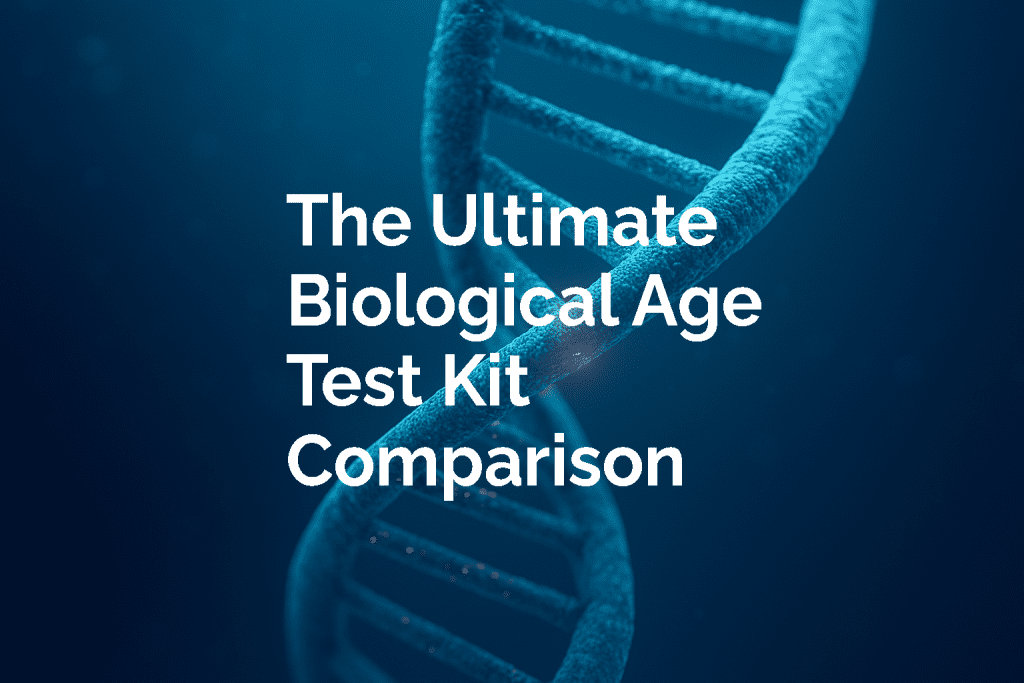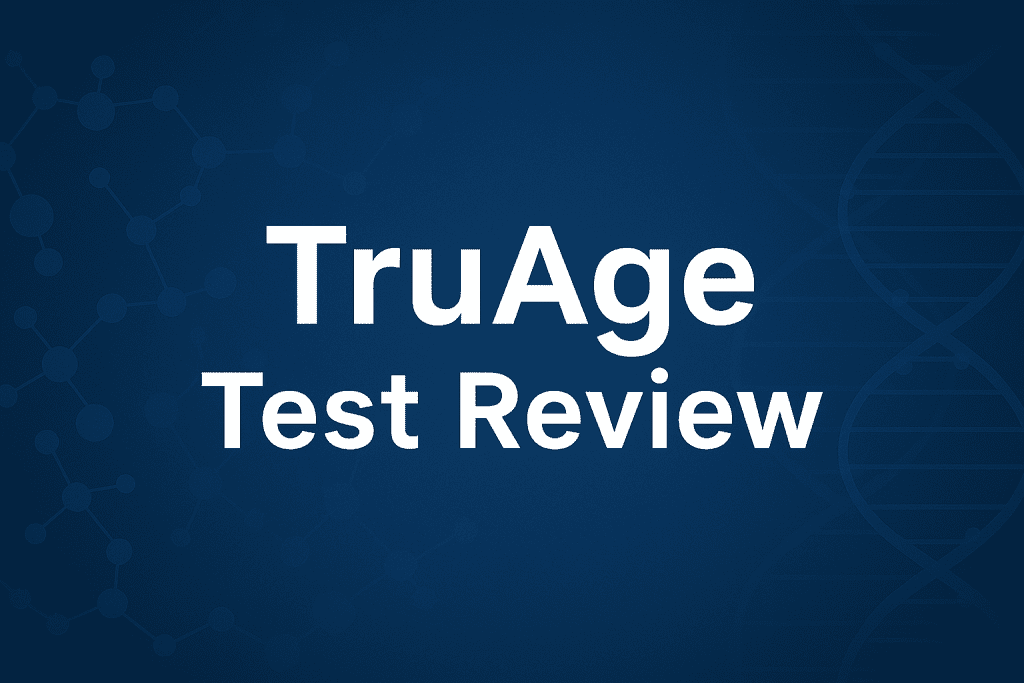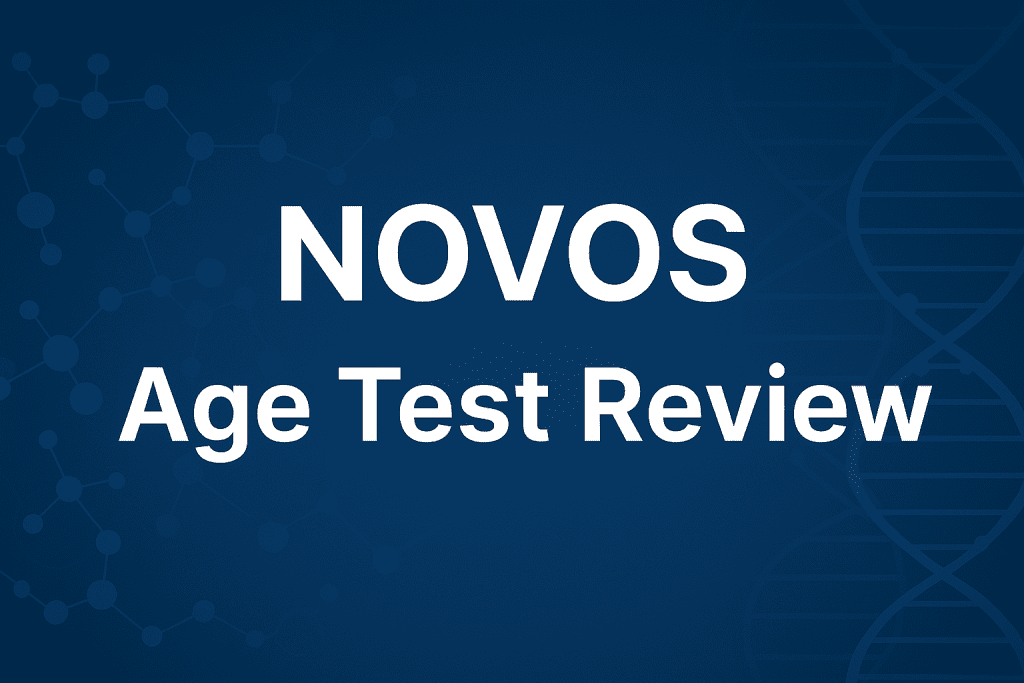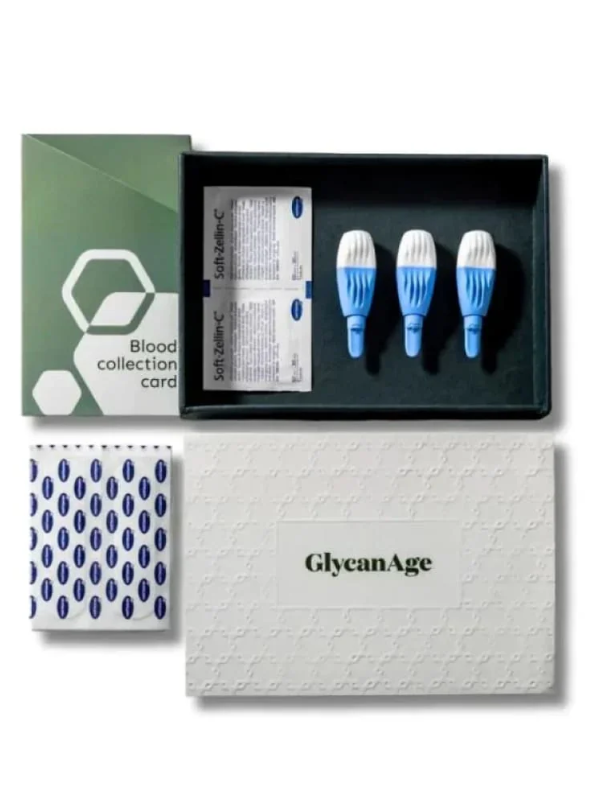
Most biological age tests look at your DNA. But what if your immune system tells a more up-to-date story about how fast you’re aging?
In this GlycanAge test review, we’ll look at what the test really measures, how it works, who it’s for, and how it compares to other aging tests.
This one is different. It doesn’t just estimate your age at the cellular level. It focuses on the inflammation and immune balance that affects how you feel and age right now.
Some links may be affiliate. We may receive a small fee if you purchase at no extra cost for you.
Table of Contents
What does GlycanAge actually measure?
GlycanAge test doesn’t look at your DNA. Instead, it measures how your immune system is aging by checking tiny sugar molecules called glycans. These stick to your antibodies and affect how your body responds to stress, illness, and inflammation.
If you have more “bad” glycans, your immune system acts older. If the balance is better, it means your body is aging more slowly and staying healthier.
GlycanAge measures:
- Biological Age: Your true cellular age
- Pace of Aging (DunedinPACE): How fast you’re aging today
- Organ-Level Age Scores: SYMPHONYAge gives age estimates for your brain, liver, heart, and 8 other systems
- Telomere Length Estimate
- Lifestyle Impact Reports: Alcohol, smoking, inflammation, immune aging
GlycanAge test report structure and result insights
GlycanAge uses a small finger-prick blood test that you collect at home and send back in a prepaid envelope.
No saliva, no large vials, no lab visits.
Once the lab receives your sample, it takes 3 to 5 weeks to get your results. Your report includes:
- Your immune system age in years
- An analysis of your glycan profile
- Visuals showing how your immune function compares to healthy ranges
- Personalized advice on improving inflammation and immune balance
Every user also gets a one-on-one consultation with a GlycanAge-trained expert. They’ll help interpret the results and answer questions about how to improve or retest later.
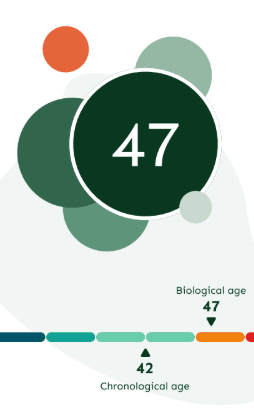
Is GlycanAge scientifically validated?
GlycanAge is based on over 30 years of glycobiology research. The test reflects how your immune system is behaving today, not your genetic risk, but your current inflammatory state.
This test is:
- Used in peer-reviewed clinical studies
- Designed by researchers from the Human Glycome Project
- Built on data from more than 200,000 tested individuals
Unlike methylation-based clocks that shift slowly, glycan profiles are dynamic and change in response to habits, diet, stress, and environment.
Use cases: who should consider GlycanAge?
GlycanAge is particularly helpful for:
- People with high stress or poor sleep patterns
- Women navigating perimenopause or menopause
- Individuals managing chronic inflammation
- Biohackers seeking fast feedback on interventions
It is often used alongside methylation tests like TruAge to monitor both cellular aging and immune system function. This makes it valuable for people focused on longevity or optimizing health routines.
How can I use GlycanAge to lower my immune age?
Take the test, follow the advice on inflammation and recovery, then retest in 3–6 months to see if your immune age improves.
- Take your first test to establish your immune system age.
- Review your glycan profile for signs of inflammation or imbalance.
- Make targeted lifestyle changes in areas like stress, sleep, diet, and hormone support.
- Retest in 3 to 6 months to see how your immune age has changed.
- Adjust your strategy based on actual progress shown in your updated results.
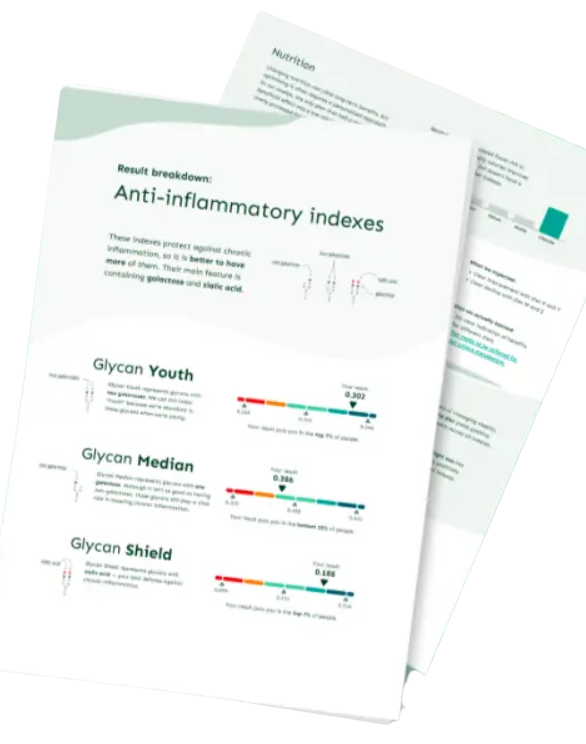
Cost, coverage & shipping
💵 One-time price: $299
🔁 Subscription price: Varies by plan (for retesting)
🏥 HSA/FSA Eligible: ❌ No
🌍 Available in: US, UK, EU, Canada, Australia, and worldwide
Includes prepaid return envelope and a simple online dashboard. No mobile app, but PDF reports are easy to read, and include expert video consultation to interpret your results.
🎁 Use code DAILYBIOHACKING at checkout
and get 10% OFF your GlycanAge test
GlycanAge vs other Biological Age Tests
🧬 GlycanAge vs TruAge
TruAge tracks DNA methylation, organ aging, and pace of aging. GlycanAge focuses on immune system aging and inflammation, more responsive to short-term lifestyle changes.
🩸 GlycanAge vs NOVOS Age
NOVOS measures methylation, telomeres, and aging pace. GlycanAge skips DNA and tracks immune aging via glycans, ideal for stress or hormone-related changes.
🧠 GlycanAge vs Elysium Index
Elysium analyzes 9 body systems with saliva-based methylation. GlycanAge zeroes in on immune aging, with high sensitivity to diet, sleep, and stress.
🧪 GlycanAge vs myDNAge
myDNAge uses Horvath’s Clock and ~2,000 CpG markers. GlycanAge uses glycan profiling, a non-methylation method focused on inflammation.
💡 GlycanAge vs DoNotAge
DoNotAge offers wide wellness data from methylation. GlycanAge offers focused immune tracking plus expert video consultations.
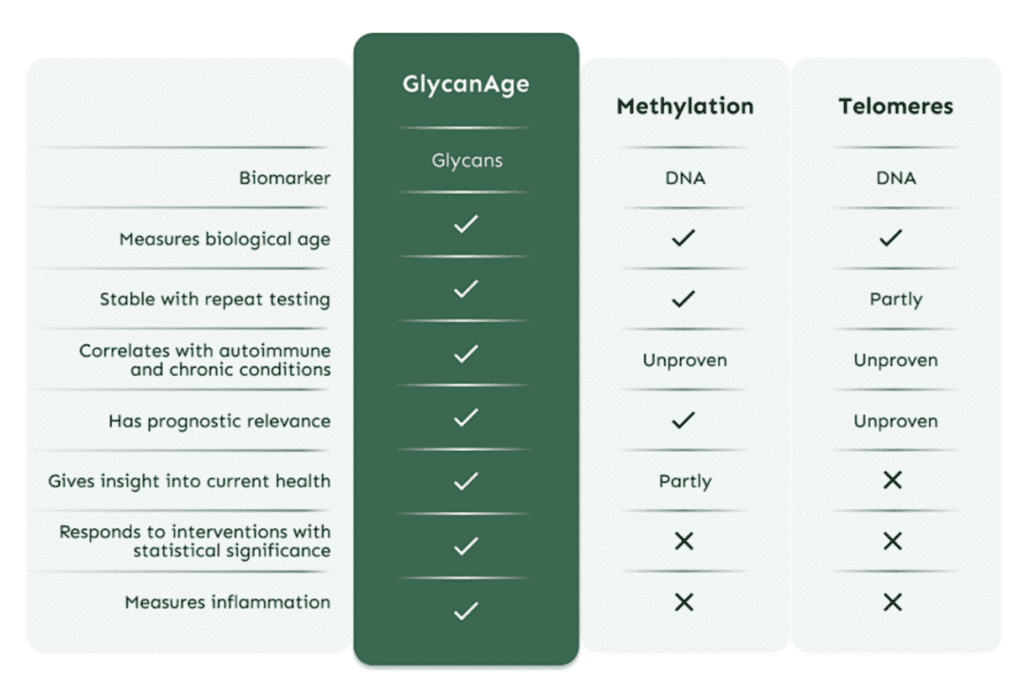
Typical feedback from online biohacking communities
🧠 On Reddit:
- GlycanAge reacts faster to lifestyle changes like diet, fasting, or stress reduction compared to methylation tests.
- Users working on menopause or inflammation say it helps track short-term immune responses.
- Some note the expert consultation adds real value, especially for interpreting results
💬 On Quora:
- Often praised for its simplicity and clear immune-age tracking.
- Seen as a good complement to methylation tests, not a replacement.
- Users say it’s helpful for people focusing on immune health, not just longevity.
FAQs
How does GlycanAge compare to TruAge or NOVOS for tracking lifestyle changes?
GlycanAge tends to show results faster because it tracks immune system activity and inflammation, not DNA methylation. It’s more sensitive to short-term changes like stress, diet, and sleep quality.
Is GlycanAge useful if I’m already healthy?
Yes, even in healthy individuals, immune aging can run ahead of chronological age. GlycanAge can highlight hidden inflammation or hormone-related shifts before symptoms appear.
Can GlycanAge help during menopause or perimenopause?
Absolutely. Hormonal changes during menopause affect immune function and inflammation. GlycanAge is one of the few tests that reflects these shifts and can show improvement with targeted interventions.
How often should I retest with GlycanAge?
Every 3–6 months is ideal if you’re actively making changes (e.g., new diet, supplements, menopause treatment). It helps track whether your habits are actually reducing immune age.
Does GlycanAge give results for telomeres or organ age?
No. It doesn’t measure telomere length or break down age by organ. It’s focused 100% on immune system aging through glycan patterns on IgG antibodies.
What if my GlycanAge result is older than my real age?
That usually signals high inflammation, chronic stress, or immune dysregulation. Your consultation will help identify potential causes and what actions to take next.
Created by SimplyAntiAging.com’s Editorial Research Team
Reviewed and updated for accuracy in January 2026.

